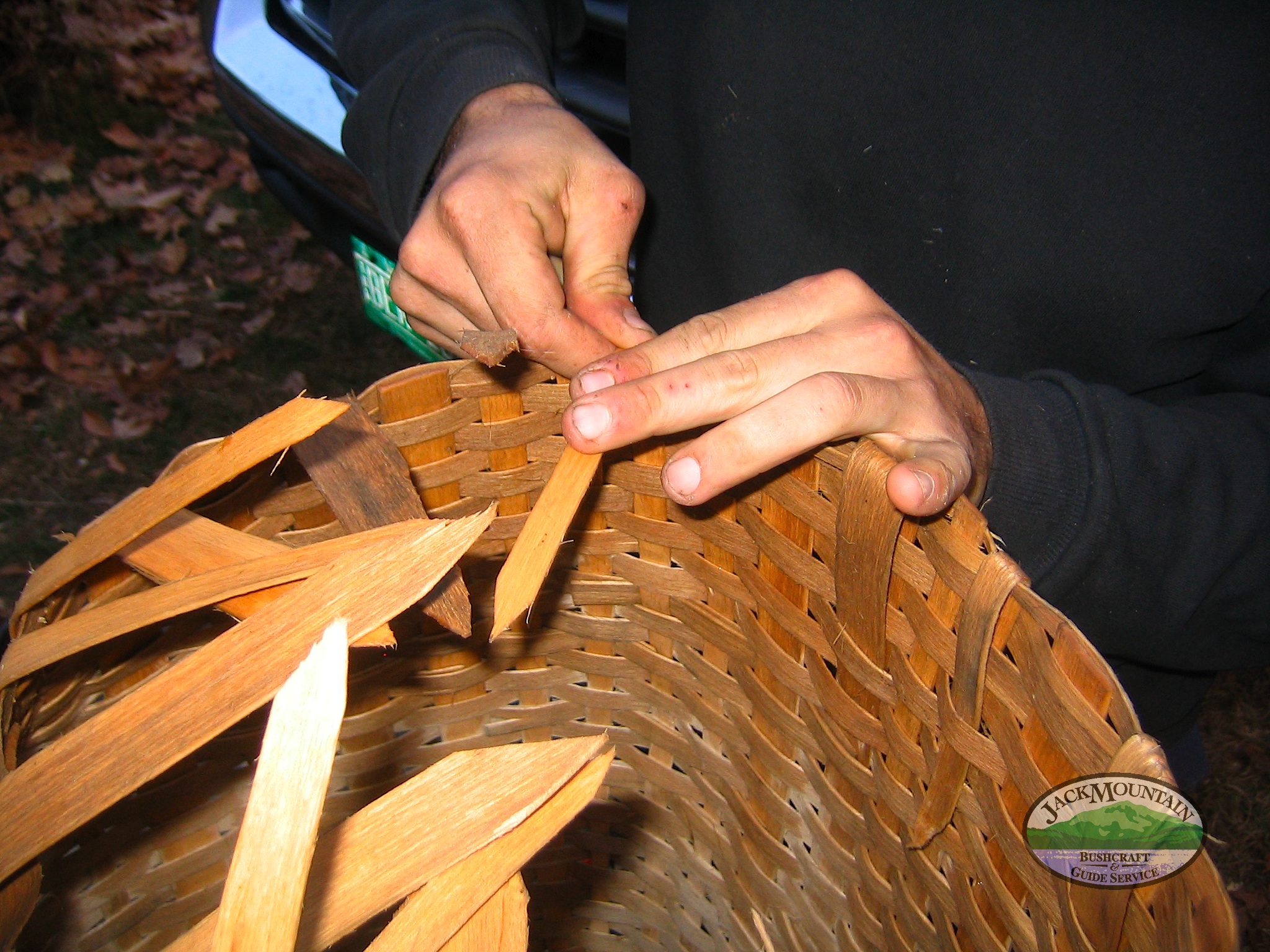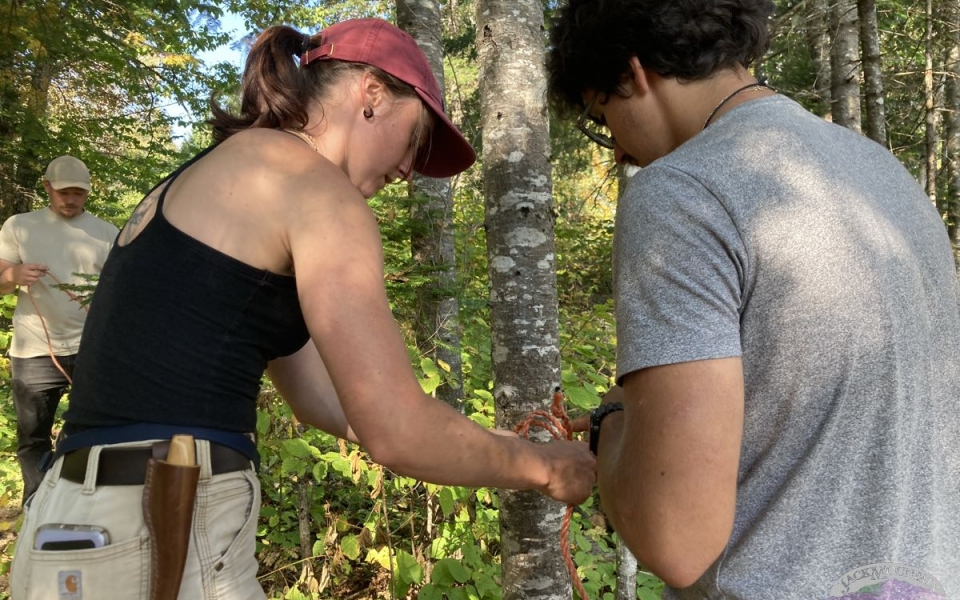· Length: 3-Weeks
· Sessions: 1
· Dates: 7/20-8/9
· Max. Size: 10
· Min. Age: 18
· Tuition: $3900
Confidence, Experience, Skills, By Women, For Women
New For 2025
Course Calendar Register Now
New for 2025, a 3-week immersion program for women, by women, designed to be a deep-dive into bushcraft, wilderness skills and traditional Maine guide canoe skills. The program is broken into three distinct phases.
Phase 1. Bushcraft skills, or life in the woods with no infrastructure. Topics covered will includes safe and efficient use of the axe and knife, building fires in dry and wet weather, making fire from friction, cooking on an open fire, making cordage and rope, essential knots for the woods, setting up tarps, building shelters, learning the edible and medicinal wild plants of the area, wilderness navigation, trip planning, meal planning, basic carving of useful items, composting and camp sanitation, introduction to solar power, and the basics of living off the grid for an extended period of time.
Phase 2. Introduction to Maine Guide expedition canoe skills, continued bushcraft skills. Topics will include all things canoeing, including paddling, poling, lining, carrying, and much more. We’ve got a series of increasingly difficult local spots where we will practice our skills, with the difficulty increasing incrementally throughout the week.
Phase 3. Remote canoe trip on the Allagash Wilderness Waterway. We will spend a week on the lower river, moving downstream to Allagash Village. Nationally known, the Allagash is a gem. We will move camp daily and be fully immersed in life on the river, where through daily practice the skills of the woods life will become second nature. Along the way we’ll cross lakes, rapids, and carry around Allagash Falls.
No experience is expected or assumed. We’re going to start at the beginning and build a solid foundation of skills and experience that will serve us well during the expedition. Our group size is limited to 10 students because the maximum size of a party on the Allagash is 12.
We will be adding a lot more information about this program in the coming weeks. If you have specific questions, reach out to Sam or Tessa directly to get them answered. You can find their contact info and preferences on our Contact Us page.
About The Instructors: Tessa Storey and Sam Summers
The instructors for the 3-week women’s immersion program are Tessa Storey and Sarah ‘Sam’ Summers. They both have extensive experience teaching at the Jack Mountain Bushcraft School, as well as guiding on the remote river systems of northern Maine. For more info about them, click through to their bio pages.
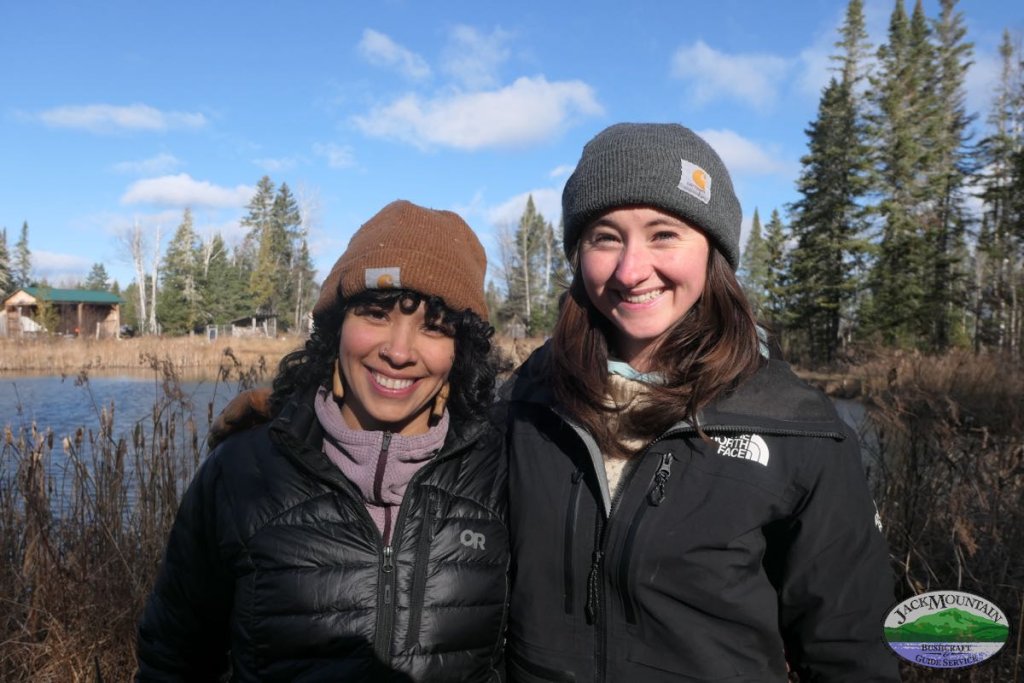
Listen to Sam and Jack Mountain Bushcraft School founder Tim Smith discuss the Women’s Bushcraft & Canoe 3-Week Immersion on episode 133 of the Jack Mountain Bushcraft Podcast. The section about the course begins at 14:00.
How The Course Is Managed
We manage the lead-up to the course, including getting ready, things to read before you arrive, neccesary gear, etc., as well as the day to day planning and discussions, via our private online network at BushcraftSchool.com. After a student registers, they will be granted access to a private section available only to members of the course. Through this we will plan, interact, and get everyone ready for the experience. During phases 1 and 2 of the course, we will use this to post and share media and other information on a real-time basis.
Course Format: Wilderness Immersion
We call our course an immersion program because for the first 2 weeks you live in the woods at our 85 acre field school, spend the third week on the Allagash river. The lessons learned are reinforced every day as part of the lifestyle.
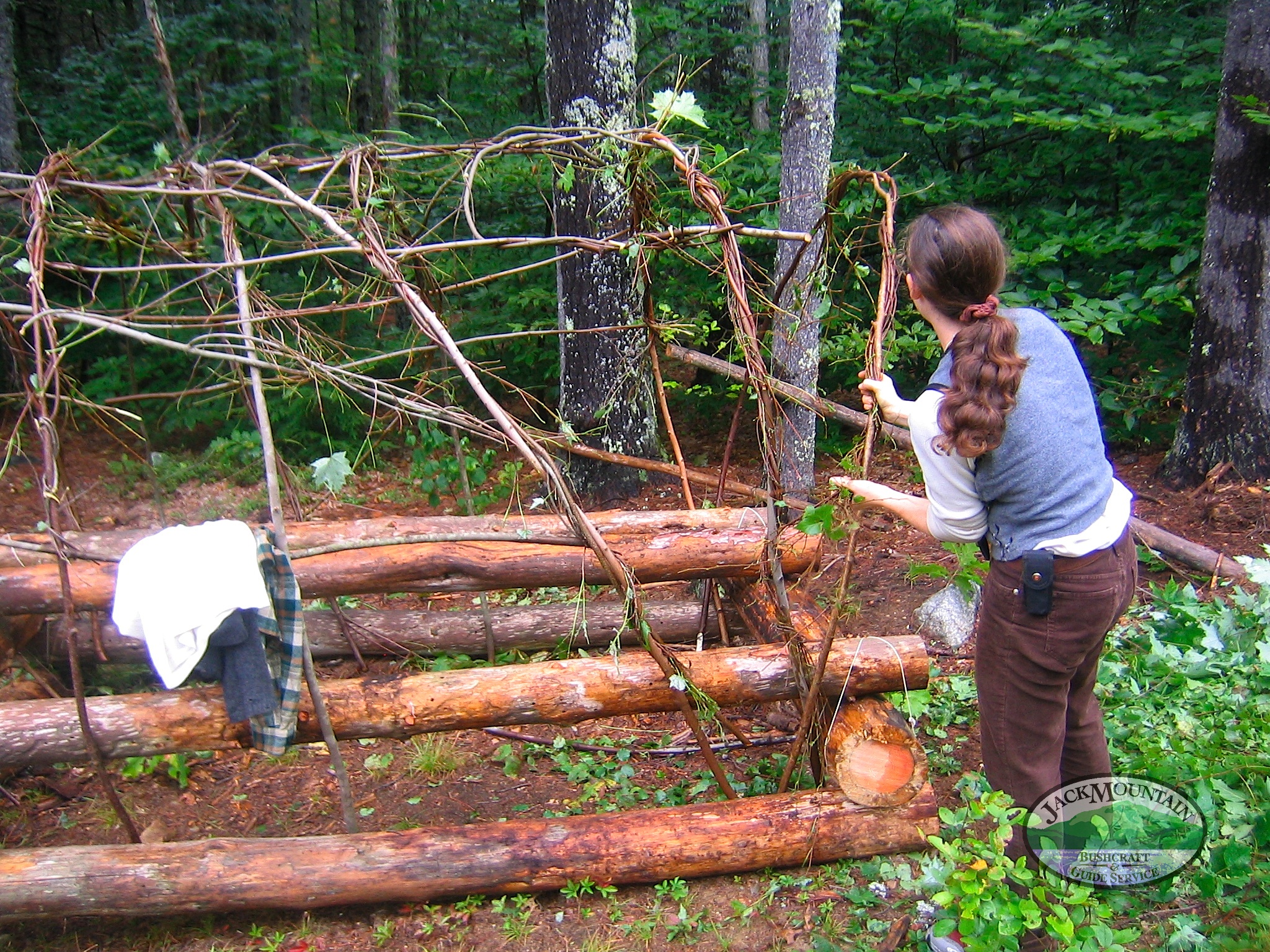
Intended Learning Outcomes
Upon successful completion of the Women’s Bushcraft & Canoe Course, students will:
1. Demonstrate skill proficiency and extensive experience in a wide variety of bushcraft and primitive skills, including axe and knife use, fire-building, shelter, outdoor cooking, cordage and natural bindings, knots, navigation, and the use of the axe, saw, and knife.
2. Demonstrate knowledge and skill in traditional canoe skills, including paddling, poling, portaging, and other related skills.
Process, Not Product
Something students hear a lot around the field school is that it’s the process that’s important, not the product. We’re process-driven. It’s nice to have a good-looking bow at the end of the process, but we’re more invested in people being able to replicate the process after the course. (Read about the process of learning bowmaking).
Learning empowers people. In a single word, our educational philosophy and mantra is CAN. Read the expanded version on our educational philosophy page.
Our Classroom: 85 Acre Off-Grid Field School & The North Maine Woods
Our field school is a working homestead located on the Aroostook river in Masardis, Maine. More info.
Directly across the road from the North Maine Woods, a 3.5 million acre working forest that’s like heaven for sportsmen and wilderness travelers.
What The Course Is Not
It is not a place to learn native spirituality. We teach and model respect for the land and its inhabitants but we don’t do so through new age religion or by misappropriating the spirituality and ceremonies of Native American or First Nation peoples.
It is not a hippy-hangout. A few years back one of our students told us he was advised by the owner of a survival school that leans tactical that he should avoid coming to Jack Mountain because we were “a bunch of hippies singing kumbaya around the fire.” Funny, but not remotely true.
It is not a reality tv show. Students are not trapped at the field school during a course. They are welcome to go to town whenever they’d like. We treat them as adults and expect them to act like adults.
Not a place for substance abuse. We’re not a great fit for substance abusers. If you have to use every day, we’re probably not a good fit for you. It crushes the motivation of a group if someone is staying out late, sleeping in, wandering into camp late and hanging around not being productive. Our job is maintain this space as one that is conducive to learning. This means that we are actively minimizing distractions due to their negative impact on the group. We ask our students to stay focused during the course. Those who can’t are asked to leave.
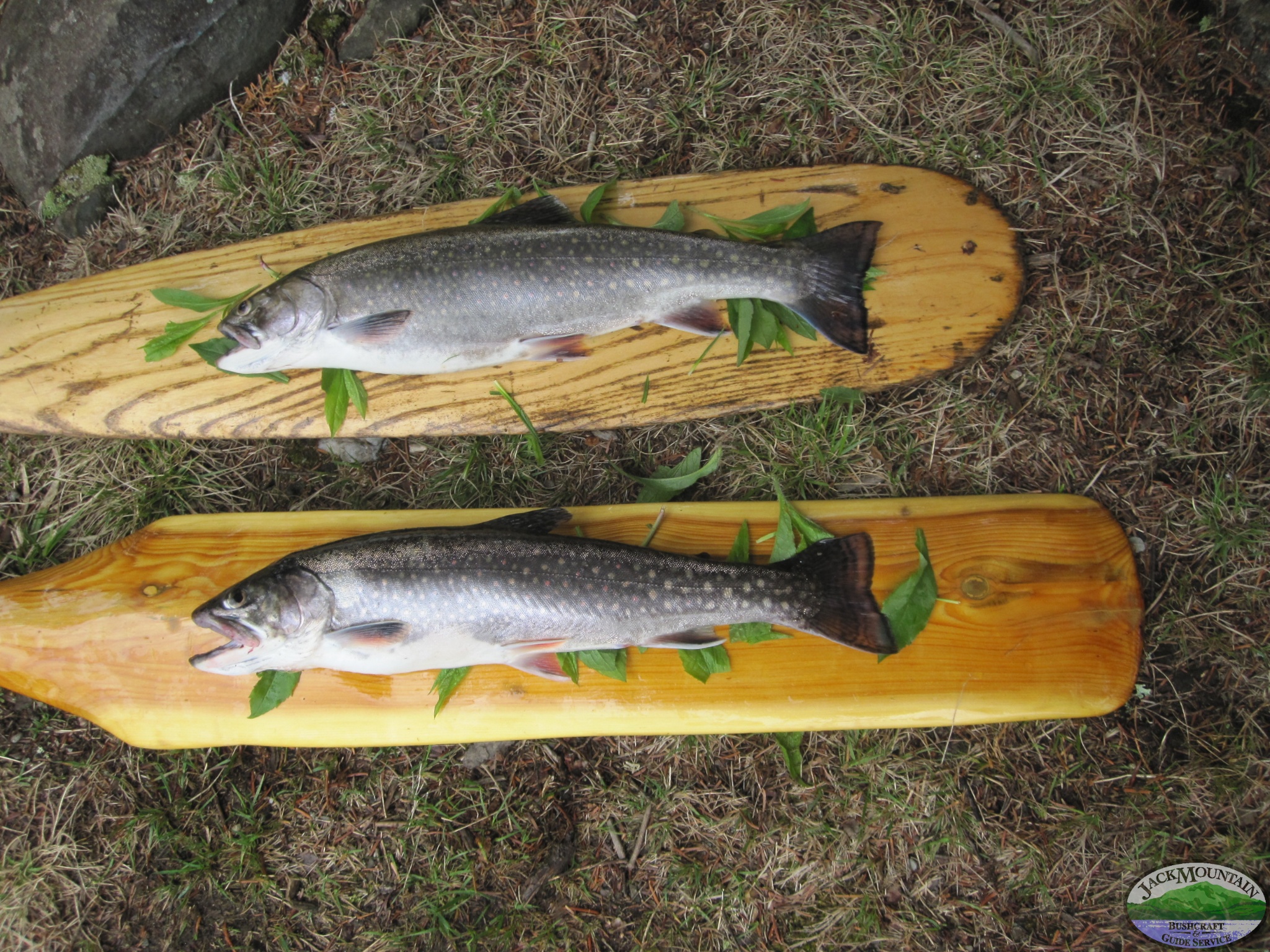
Allagash Brook Trout
7 Elements Of Jack Mountain Programs
Skill – Journey – Craft – Nature – Culture – Sustainability – Self
Drawing on the philosophies of bushcraft we’ve developed over 21-years of field courses, the traditions of Maine Guides that go back generations, the Cree concept of miyupimaatisiium (translated as “being alive well”) and the Scandinavian idea of friluftsliv (translated as “open air life”), the following seven elements comprise the components of our semester and yearlong programs.
1. Skill – Learn by doing. Too much of modern education is theoretical, abstract and sedentary, where the head is engaged but the hands are not. We depart from that norm with a tangible, hands-on approach that emphasizes being an active participant in the natural world and in life. Our 21-point curriculum focuses on necessary skills for the professional outdoors person.
2. Journey – Travel through remote parts of the north woods alongside professional guides, directly experiencing what you’re learning. Live in the bush for extended lengths of time where the focus isn’t simply how-to, but living with efficiency and grace that come with extensive experience.
3. Craft – Explore the world with your hands. Build useful items from materials gathered on the landscape. Man needs tools to live. Making these necessary items from materials gathered from the landscape bonds you to the land and makes you self-reliant.
4. Nature – Learn the language of the world around you. Study the weather, edible/medicinal plants, fungi, mammals and their tracks, birds, fish, mollusks, insects, amphibians, reptiles, rocks, minerals, soil, water, ice, celestial bodies and ecology.
5. Culture – Culture is the human element, or soft skills, which make or break an expedition. Learn management and leadership skills crucial to the professional guide and outdoor leader, as well as how to instruct effectively.
6. Sustainability – Life is different with minimal infrastructure. Learn the techniques of living a simple, low-tech life with minimal inputs by living them every day. Compost everything that will rot, grow food, reuse and repurpose resources, care for the land and leave it healthier for future generations.
7. Self – Learn your specific needs and boundaries. In a world of generalizations, it’s important to know exactly what you need to function well. How much sleep do you need to function? How much water? How much of a bed do you need to make in order to sleep well? This is about intimately knowing yourself and what you need to do to keep your body alive and well. The only way to learn it is to live it.
Course Prep Info Register Now
